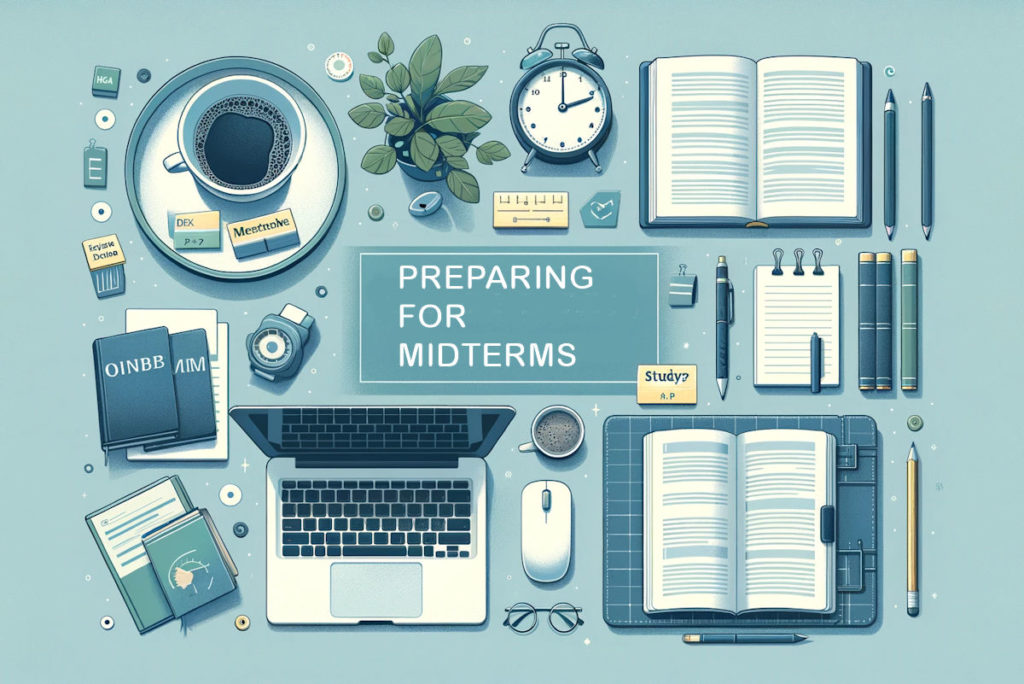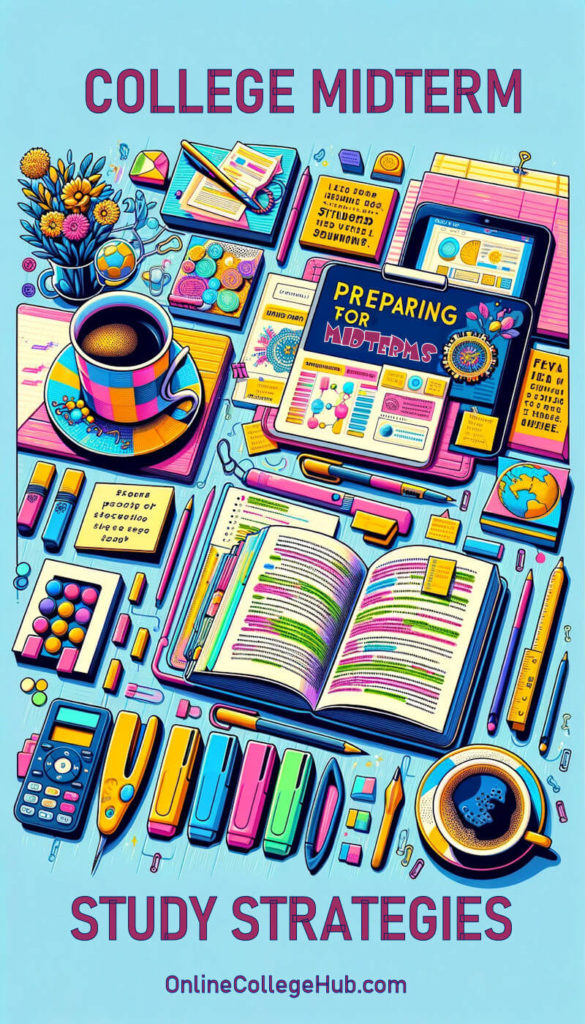
Understanding the Midterm Assessment
Midterm examinations are structured academic assessments that occur approximately at the midpoint of an academic semester or term. These exams are crafted to evaluate a student’s understanding and retention of the curriculum covered during the initial half of the academic period.
Unlike final exams, which encompass the entirety of a course’s material, midterms typically focus on a specific segment, allowing for a more concentrated and in-depth evaluation.
The role of midterms extends beyond mere assessment; they serve as a crucial feedback mechanism for both students and educators.
For students, these exams are an opportunity to reflect on their learning process and identify areas requiring additional focus. For teachers, midterms provide insight into the effectiveness of their teaching methods and the need for potential course adjustments.
Midterm Formats and Expectations
The format of midterm exams varies widely across disciplines and institutions. Common formats include multiple-choice questions, essays, short answers, problem-solving exercises, and practical applications. The diversity in assessment methods ensures a comprehensive evaluation of a student’s abilities, from knowledge recall to critical thinking and practical application.
Preparing for midterms requires an understanding of not only the content but also the format of the examination. Students are encouraged to seek clarity on the structure of their midterms, as this knowledge significantly aids in devising an effective study strategy. Familiarity with the exam format allows students to tailor their preparation, accordingly, focusing on areas of strength and addressing weaknesses.
Mastering Time Management for Midterm Success
Strategic Scheduling
Time management is a critical skill for academic success, particularly in the context of midterm examinations. The ability to efficiently allocate and utilize time can significantly enhance the quality and effectiveness of one’s study regimen. The first step in this process is the creation of a structured study schedule. This schedule should account for all academic responsibilities, including class times, assignments, and revision periods, while also allowing for personal commitments and rest.
Prioritization and Segmenting Study Sessions
In preparing for midterms, prioritization becomes paramount. Subjects or topics that are challenging or carry more weight in the grading system should be allotted more time. Additionally, breaking down study material into manageable segments can prevent overwhelming and facilitate better retention of information. Short, focused study sessions are generally more effective than prolonged, less focused ones. This method, known as ‘spaced repetition’, aids in solidifying memory and understanding.
Procrastination and Distractions
Procrastination is a common hurdle in effective time management. To combat this, students should identify and mitigate potential distractions – be they digital, environmental, or social. Setting specific goals for each study session and rewarding oneself upon completion can foster motivation and a sense of accomplishment. It is also beneficial to create a conducive study environment, free from interruptions, to maintain focus and productivity.
Active Study Techniques for Enhanced Learning
Engaging with the Material: Active vs. Passive Studying
Active studying is a dynamic approach to learning that involves engaging with the material, as opposed to passively reading or memorizing. This method promotes deeper understanding and long-term retention. Techniques such as self-quizzing, creating summaries, and teaching the content to someone else are examples of active studying. These practices encourage critical thinking and application of knowledge, which are essential skills for midterm exams.
Utilizing Diverse Study Methods
To maximize the efficacy of study sessions, students should employ a variety of active study techniques. Flashcards can be effective for memorizing facts and definitions, while summarizing information in one’s own words aids in understanding concepts. For subjects requiring application skills, such as mathematics or sciences, practice problems are invaluable. Group study sessions, when structured properly, can also be beneficial, providing opportunities for discussion, clarification of doubts, and exposure to different perspectives.
Incorporation of Technology and Resources
In the digital age, a plethora of resources are available to aid in active studying. Educational platforms, online tutorials, and interactive applications can supplement traditional study methods, offering diverse modes of learning. However, it is crucial to utilize these tools judiciously and ensure that they complement, rather than distract from, the study process.
In the following sections, we will explore the utilization of available resources, maintaining health and wellness during study periods, and effective test-taking strategies, all aimed at equipping students with a comprehensive toolkit for excelling in their midterm examinations.

Leveraging Academic Resources for Midterm Preparation
Maximizing the Utility of Educational Tools
An integral component of effective midterm preparation is the utilization of available academic resources. This encompasses a broad spectrum of tools, ranging from textbooks and scholarly articles to online databases and educational software. Leveraging these resources can provide a more in-depth understanding of course material and present different perspectives that enrich the learning experience.
Engaging with Instructors and Academic Support Services
Instructors and academic advisors are invaluable resources in a student’s academic journey. Seeking clarification and guidance from these individuals can enhance one’s understanding of complex topics. Additionally, many institutions offer tutoring services, writing centers, and study workshops, which can provide targeted assistance and improve study techniques. Engaging with these services early and often can significantly bolster one’s preparation for midterms.
Study Groups: Collaborative Learning Environments
Participating in or forming study groups can be an effective strategy for preparing for midterms. These groups provide a platform for discussing course material, exchanging ideas, and gaining new insights. However, it is crucial to ensure that these sessions remain focused and productive. Setting clear objectives, choosing committed group members, and maintaining a structured approach are key to the success of study groups.
Health and Wellness During Midterm Season
The Critical Role of Physical and Mental Well-being
While academic performance is important, it should not come at the expense of one’s health and well-being. Prolonged periods of study without adequate rest can lead to burnout, decreased productivity, and adverse health effects. It is crucial to maintain a balanced lifestyle, which includes proper nutrition, sufficient sleep, and regular exercise.
Stress Management Techniques
Midterm examinations can be a significant source of stress for students. Developing effective stress management techniques is essential. This can include mindfulness practices, such as meditation and yoga, engaging in hobbies or recreational activities, and ensuring social interaction and support from friends and family. Recognizing the signs of excessive stress and seeking help when necessary is also important.
The Importance of Breaks and Downtime
Regular breaks are vital for maintaining focus and preventing fatigue. The Pomodoro Technique, which involves taking short breaks after focused study sessions, is an effective method to enhance productivity. Additionally, ensuring downtime and leisure activities can rejuvenate one’s mind and body, leading to more effective study sessions.
In the final section, we will delve into the strategies for approaching the actual midterm exams, including preparation on the day of the exam, tackling different types of questions, and post-exam reviews for continuous improvement.
Effective Test-Taking Strategies for Midterm Exams
Preparation on the Day of the Exam
On the day of the midterm, it is important to approach the exam with a clear and focused mind. This involves reviewing key concepts and formulas, ensuring all necessary materials are prepared (e.g., pens, calculators, identification), and arriving at the exam venue early to settle in. A brief mental preparation, envisioning a positive outcome, can also set the tone for a calm and confident approach to the exam.
Navigating Different Types of Questions
Midterm exams can comprise various question types, each requiring a unique approach. For multiple-choice questions, careful reading and process of elimination are key. Essay questions demand a structured response, starting with a clear thesis and followed by supporting arguments. For problem-solving or case study questions, a step-by-step approach is essential, ensuring all parts of the question are addressed.
Post-Exam Review and Learning from Mistakes
After the exam, it is beneficial to review your performance. This includes reflecting on what strategies worked well and where improvements can be made. If possible, reviewing the exam with an instructor or peers can provide additional insights. Learning from mistakes and understanding where errors were made can be invaluable for future academic pursuits.
Conclusion
Midterm exams are a significant aspect of the academic journey, providing a platform for students to demonstrate their understanding and mastery of course content. While these exams can be challenging, employing effective study strategies, managing time efficiently, leveraging resources, maintaining health and wellness, and applying efficient test-taking techniques can greatly enhance the chances of success. Remember, midterms are not just about grades; they are opportunities for learning, growth, and self-assessment.